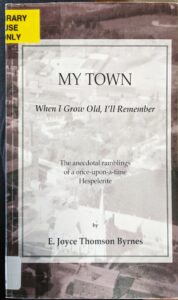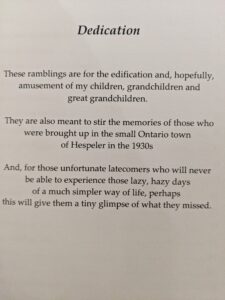It’s weird how school terms seem pretty ok when you’re in them but then when they’re done you’re like “wow, that sure was, a brickload of stress I was under, I had no time to do anything!” You think I’d be used to it after like 4 years.
Anyways, now that I have dealt with both exams and a case of what was likely bronchitis that my friend had thoughtfully gifted me from all the way across the pond, I’m finally ready to finish what I started. So here are the some of the most interesting things from the internet that I’ve read in the latter half of 2019.
As a reminder, the articles aren’t necessarily published during this period, although many of them are – I choose my collection from what I’ve bookmarked over the months in question.
August
The Anglosphere Has Always Had Three Genders (Archive)
Death is Bad Blog, 2019
I see almost everyone on both sides acting as if traditional American society has only two genders, and I don’t think this is right. It’s at least half-wrong, anyway. Because since its inception, American society has always had a third gender option for women, and I think this is true for all anglophone cultures for several centuries now. I speak, of course, of the tomboy.
I think this is an interesting theory, and honestly based on the feminist theory I’ve read it seems like it could be valid. But my own, lived experience as a tomboy is messier. My tomboyness 100% had a performativity aspect to it, and my tomboyness changed the things I was allowed to do, restricting in some places and expanding in others.
As a girl, I really liked some of the affectations of femininity – the colour pink, wearing dresses, doing my long hair in elaborate ways. but I had to act as though I didn’t. In return, I was allowed to climb trees and fences, and bring worms home when it rained, and play with beyblades with the boys in the sand pit. I think some part of me knew that I was making a bargain at the time, because the world would not accept me in its entirety. And I decided that I valued wearing dresses less than I value the freedom to climb trees. And I feel like this story of sacrifiting bits of yourself so that you’re legible to others in your society, isn’t innate to tomboyhood, or even femininity. It just sounds like part and parcel of being human, and (sigh) living in a society.
Ra (Archive)
Sarah Constantin, 2016
Ra is a specific kind of glitch in intuition, which can roughly be summarized as the drive to idealize vagueness and despise clarity.
This wasn’t like, the first time that I read this essay, but at the end of my internship deep within the guts of the federal welfare machine, as I began to see more and more of the picture, it was a piece that kept coming to the forefront of my mind.
What’s interesting is that I think I started the term off very anti-Ra, but by the end, I was seeing many benefits that come from vagueness. It’s not a glitch in intuition, it’s a tradeoff. The vagueness is intrinsically powerful in many ways – although it is a dangerous path that is conducive to corruption and systemic rot. All in all, it’s not a tradeoff I would make, but I can see why others might. I think anyone who works in a large company or organization should read this piece, and come to their own conclusions.
September
Untitled microfiction piece (Archive)
Grimelords, 2014
There’s six guys who live in this flat and all they do all day is play WoW and watch movies.
Short and tender piece about the university experience, if you’re a certain type of nerd.
Warcraft: LFG (Archive)
Left Conservative, 2016
Think about this the next time you wonder why, as we have more loot, more sex, more games, and more media that fits our tastes than ever before, we’re also less satisfied than we’ve ever been.
A cool microcosm of what modernity does.
October
It’s not “them” — it’s us! (Archive)
Betsy Leondar-Wright, 2006
“But let’s say that some working-class people did nevertheless manage to get into this organization. What would we do to make sure they felt uncomfortable and to stop them from taking leadership?” The group launched in with gusto: “A dress code — nothing but tuxedos and evening gowns!” “Fancy food — caviar and champagne!” “The real business takes place at the golf course at the country club!”
No-one said anything like “tofu.”
An old piece, but one that is still so incredibly useful and informative for building cross-class coalitions.
The Music of “Hustlers” and the Soaring, Stupid National Mood Circa 2008 (Archive)
Jia Tolentino, 2019
I started crying a little, because Usher’s “Love in This Club” was playing. It’s a song with synths that shudder like lasers, and a central looping riff so triumphant and brimming that it sounds like someone telling you that you’re never going to die. As the song played, a flash of pre-recession memories emerged from beneath eleven years’ worth of increasingly subdued expectations: I was in college, and things often felt that good and endless, even though the wad of bills in my pocket was a bunch of greasy ones from waiting tables and my roommates and I were blasting “Love in This Club” in our wood-panelled living room, wearing clearance American Apparel and chugging leftover keg beer, hoping that we wouldn’t see any mice. It feels unseemly and indulgent to get nostalgic about something so dumb and so close to the present, and yet “Hustlers” helped me realize how many people have begun to remember the brief period just before the recession in a similar way.
If you ever want to relive 2007, here is one very excellent way to do it.
November
Why Are My Students Afraid of the World? (Archive)
Christopher Schaberg, 2019
I’m talking about discomfort with the physical world outside our campus buildings, things like sitting on grass: many students just won’t do it.
A new(?) phenomenon, that seems simultaneously tragic, dangerous, and inevitable.
The Real Class War (Archive)
Julius Krein, 2019
The socioeconomic divide that will determine the future of politics, particularly in the United States, is not between the top 30 percent or 10 percent and the rest, nor even between the 1 percent and the 99 percent. The real class war is between the 0.1 percent and (at most) the 10 percent—or, more precisely, between elites primarily dependent on capital gains and those primarily dependent on professional labor.
The last few years have brought about a new “discovery” of working-class immiseration—a media phenomenon arguably provoked by renewed elite anxieties. As a result, the story of a declining working class is now broadly understood. It is, after all, decades old, and it was entirely predictable if not exactly intended. Much less understood, however, is the more recent reshaping and radicalization of the professional managerial class. While the top 5 or 10 percent may not deserve public sympathy, their underperformance relative to the top 0.1 percent will be more politically significant than the hollowing out of the working or lower-middle classes. Unlike the working class, the professional managerial class is still capable of, and required for, wielding political power.
This maps on very well to the class-based discussions that I’m seeing online and in-person (in my very academic crowd, being a uni student and all).
December
What Is a Take? A Trans Feminist Take on the 2019 British Election Results (Archive)
Grace Lavery, 2019
At some point in the last, say, five years, the phrase “hot take” both started to appear less frequently in conversations about online culture (especially Twitter), and the apparently more neutral term “take” has seemed to appear more frequently. The shift seems to have entailed a subtle shift in tone, too. The phrase “hot take” was usually fairly scornful, indicative of a callow or insincere attempt to gin up controversy for the sake of getting attention, much like “clickbait.” Another term from the same period, “thinkpiece,” possessed an even stronger critical association: the typifying thinkpiece was self-indulgent, unfocused pie-in-the-sky; the term carried the sense of intellectual irresponsibility, an inability or refusal to grasp things as they actually are. In that sense, then – and this will be a hot take for some, and a very cold one for others – that the object scorned by the term “thinkpiece” is conceptually indistinguishable from the object once scorned by the term “theory.” We have never lacked for terms to indicate our contempt for those whose thinking is piecemeal, or who fail/refuse to knead the pieces into a larger thinkloaf.
A really weird and interesting piece, and a good example of what queer theory can contribute to one’s understanding of the world. I wanted to excerpt the entire thing.
Probably the best take you’ll get on the new star wars movies ugghhhhh (Archive)
Kuiperblog, 2019
Rogue One might be the only film since the original trilogy that really understood what, exactly, Star Wars was before it was Star Wars Episode IV: A New Hope.
As someone who doesn’t care about Star Wars, this was an extremely interesting piece of analysis that made me care more about Star Wars.
Okay! Those are the links. Hopefully the next retrospective wouldn’t be like, 6 months late, but we’ll see 😛


